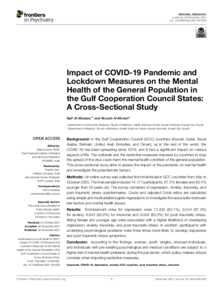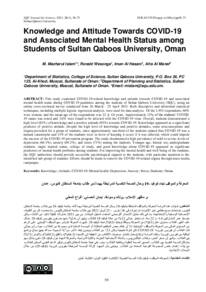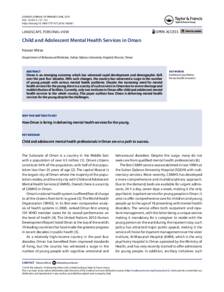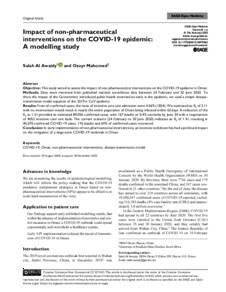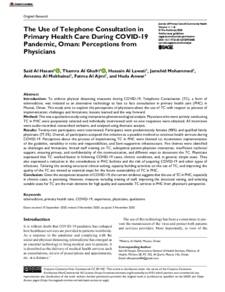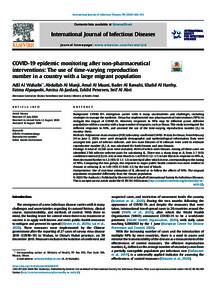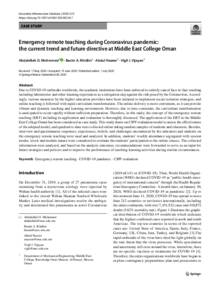وثيقة
Impact of COVID-19 pandemic and lockdown measures on the mental health of the general population in the Gulf cooperation council states : a cross-sectional study.
المعرف
DOI: 10.3389/fpsyt.2021.801002
المصدر
Frontiers in Psychiatry. v. 12, 801002
المساهمون
Al-Mutairiyah, Nourah., مؤلف
الدولة
Switzerland
الناشر
Frontiers Media S.A.
ميلادي
2021-12-20
اللغة
الأنجليزية
الموضوع
الملخص الإنجليزي
Background: In the Gulf Cooperation Council (GCC) countries (Kuwait, Qatar, Saudi Arabia, Bahrain, United Arab Emirates, and Oman), as in the rest of the world, the COVID-19 has been spreading since 2019, and it had a significant impact on various aspects of life. The outbreak and the restrictive measures imposed by countries to stop the spread of the virus could harm the mental health condition of the general population. This cross-sectional study aims to assess the impact of the pandemic on mental health and investigate the potential risk factors. Methods: An online survey was collected from individuals in GCC countries from May to October 2020. The final sample included 14,171 participants, 67.3% females and 60.4% younger than 35 years old. The survey consisted of depression, Anxiety, Insomnia, and post-traumatic stress questionnaires. Crude and adjusted Odds ratios are calculated using simple and multivariable logistic regressions to investigate the association between risk factors and mental health issues. Results: Endorsement rates for depression were 11,352 (80.1%), 9,544 (67.3%) for anxiety, 8,845 (63.9%) for insomnia and 9,046 (65.2%) for post-traumatic stress. Being female and younger age were associated with a higher likelihood of developing depression, anxiety, insomnia, and post-traumatic stress. In addition, participants with underlying psychological problems were three times more likely to develop depressive and post-traumatic stress symptoms. Conclusion: According to the findings, women, youth, singles, divorced individuals, and individuals with pre-existing psychological and medical conditions are subject to a higher risk of mental health problems during the pandemic, which policy-makers should consider when imposing restrictive measures.
ISSN
1664-0640
قالب العنصر
مقالات الدوريات

